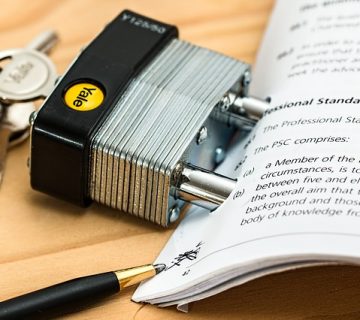Mortgage Payments
So called “Subject To” investing in real estate is one of the most powerful ways to buy properties from homeowners using little or no investor capital. This process calls for the investor to assume the homeowner’s mortgage payments but not the liability of the mortgage. But as simple as it sounds, it can become very complicated if not done properly.
Virtually all mortgages contain a Due on Sale Clause that stipulates that if the property that is collateralized by the mortgage is sold or the title is transferred in any way, the mortgage principal and accrued interest is due and payable immediately or within a specific time period, i.e., 90 days. This clause would seem to preclude a homeowner from selling his home to an investor and allowing his mortgage to stay in place. However, in practicality, this is civil contract law and therefore there is no criminal violation to deter the investor.

However, the issue that often arises is the homeowner is not fully disclosed as to the risk of his allowing the sale of his property with his mortgage staying attached to the property. Here are the most basic of these concerns:
One
If the investor stops making mortgage payments the homeowner may go into foreclosure and your mortgage will be canceled.
Two
If the homeowner goes into foreclosure because of the investor, the homeowner can’t evict or foreclose on the investor any moment.
Three
The homeowner’s credit can be destroyed if the investor makes the mortgage payments late every month but no foreclosure is necessary.
Four
If the investor rents the property, the former homeowner is not entitled to any rent, can’t evict a tenant, has no control .
The former owner can’t do a short sale or a deed in lieu of foreclosure because he is no longer the owner of the property.
In the event of a market decline, the former owner’s property may go upside-down and he will be helpless to sell the property and pay off his mortgage – which he will be responsible for until it is paid off or foreclosed out.
The benefits to the homeowner are the rapid sale of his property which takes the headache and worry off his mind. Actually, quite a few homeowners allow the sale with their mortgage remaining in place. Mostly they do this because of the expectation of the investor rehabbing and reselling the property in a reasonable period.
The gigantic advantage to the investor is that he needs very little or no money to buy the property. He may even have the seller take back a second mortgage known as seller financing so that the investor will have no money in the transaction. While this practice may sound illegal or impossible to a reader, in fact, it is a standard method of buying properties.
A good mortgage broker in Ottawa can help you sort out the complexities of this type of transaction.

The problem for the investor occurs when he starts making late mortgage payments or no payments at all. The integrity that the homeowner counted on for his making the payments is lost. The former homeowner usually calls the lender and says to foreclose because he no longer owns his home. In more than 10,000 actual cases of using subject to mortgage assumptions, I have only seen one lender try to accelerate the loan.
Actually what the lender did was to stop sending the monthly statement to the investor so he would not know how much to pay on the variable interest rate loan that changed monthly. The investor just continued to make the previous monthly payments and added $100 each time to cover any fluctuations in the amount due. He sold the property shortly thereafter and paid off the loan balance and the seller’s second mortgage.

Complication
Purchasing a home can be a complicated and confusing process, especially for first-time buyers. Throughout the process, first-time home buyers will encounter a variety of unfamiliar real estate terms. There are several key terms associates with purchasing real estate that are helpful to learn.
For example, many buyers confuse the terms broker and salesperson. A broker is a properly licensed individual, or corporation, who serves as a special agent in the purchase and sale of real estate, a salesperson is an individual employed or associated by written agreement by the broker as an independent contractor. The salesperson facilitates the purchase or sale of real estate. Usually we use the licensed term of Realtor to describe the sales person.

Once you decide to purchase, a salesperson will prepare a sales contract to present to the seller along with your earnest money deposit. The sales contract is the document through which the seller agrees to give possession and title of property to the buyer upon full payment of the purchase price and performance of agreed-upon conditions. The earnest money is a buyer’s partial payment, as a show of good faith, to make the contract binding. Often, the earnest money is held in an escrow account. Escrow is the process by which money is held by a disinterested party until the terms of the escrow instructions are fulfilled.
After the buyer and seller have signed the contract, the buyer must obtain a mortgage note by presenting the contract to a mortgage lender. The note is the buyer’s promise to pay the purchase price of the real estate in addition to a stated interest rate over a specified period of time.
In general, there are two types of conventional loans that a buyer can obtain. A fixed rate loan has the same rate of interest for the life of the loan, usually 25 – 30 years. An adjustable rate loan or adjustable rate mortgage (ARM) provides a discounted initial rate, which changes after a set period of time. The rate can’t exceed the interest rate cap or ceiling allowed on such loans for any one adjustment period. Some ARMs have a lifetime cap on interest but most do not. The buyer makes the mortgage and interest payments to the lender through amortization, the systematic payment and retirement of debt over a set period of time.
 Once the contract has been signed and a mortgage note obtained, the buyer and seller must legally close the real estate transaction. The closing is a meeting where the buyer, seller and their attorneys review, sign and exchange the final documents. At the closing, the buyer receives the appraisal report, an estimate of the property’s value with the appraiser’s signature, certification and sporting documents. The buyer also receives the title and the deed. The title shows evidence of the buyer’s ownership of the property while the deed legally transfers the title from the seller to the buyer. The final document the buyer receives at closing is a title insurance policy, insurance against the loss of the title if it’s found to be imperfect.
Once the contract has been signed and a mortgage note obtained, the buyer and seller must legally close the real estate transaction. The closing is a meeting where the buyer, seller and their attorneys review, sign and exchange the final documents. At the closing, the buyer receives the appraisal report, an estimate of the property’s value with the appraiser’s signature, certification and sporting documents. The buyer also receives the title and the deed. The title shows evidence of the buyer’s ownership of the property while the deed legally transfers the title from the seller to the buyer. The final document the buyer receives at closing is a title insurance policy, insurance against the loss of the title if it’s found to be imperfect.
Buyers should plan on a least four to twelve weeks for a typical real estate transaction. The process is difficult and at times, intimidating. A general understanding of real estate terminology and chronology of the transaction, however, will help any real estate novice to confidently buy his or her first home.
To overcome the potential risk to an investor doing a subject to mortgage assumption, it is imperative that he disclose in writing to the seller that any or all of the above “problems” I mentioned above could happen. If you think the owner will not sell, you may be right but if he is motivated, he will sell. It is only morally reasonable and also good business practices that a seller should know what extended liability he may have. The benefit to the investor is that this disclosure will help forgo a lawsuit if something goes wrong later. Remember, an ounce of prevention is worth a thousand pounds of attorney’s fees.
A mortgage lender or Calgary Mortgage Broker places a lien on the property, or mortgage, and this secures the mortgage note.
The buyer pays interest money to the lender exchange for the use of money borrowed. Interest is usually referred to as APR or annual percentage rate. Interest is paid on the principle, the capital sum the buyer owes. Interest payments may be disguised in the form of points. Points are an up-front cost which may be paid by either the buyer or seller or both in conventional loans.